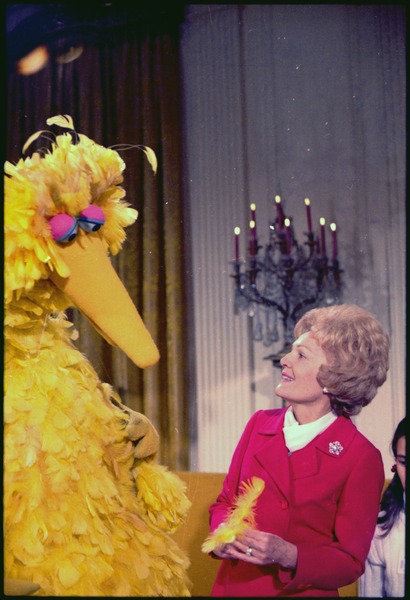How'd We Get to Sesame Street?
 In the midst of last week’s debate, which saw Mitt Romney in top form and the president looking down at his podium, a statement made by Romney has the media buzzing. When speaking about government spending and the deficit, Romney reiterated his goal of ending the federal government’s financial support for the Public Broadcasting Service (PBS), a network that hosts, among other popular programs, the legendary educational children’s show “Sesame Street” and its iconic host Big Bird.
In the midst of last week’s debate, which saw Mitt Romney in top form and the president looking down at his podium, a statement made by Romney has the media buzzing. When speaking about government spending and the deficit, Romney reiterated his goal of ending the federal government’s financial support for the Public Broadcasting Service (PBS), a network that hosts, among other popular programs, the legendary educational children’s show “Sesame Street” and its iconic host Big Bird.
Americans of all ages have fond memories of watching Big Bird, The Count, and Elmo and learning the basics of language and arithmetic. For many, this personal history creates a strong connection to PBS; indeed, when I was a child my favorite television program was the PBS show “Cyberchase”, a show that taught fundamental mathematics and logic – skills that I now employ daily as a science major.
The debate statement ruffled so many feathers that PBS actually released a statement that elaborates on the value of public broadcasting and criticizes Romney’s call for the end of the PBS subsidy. The subsidy, worth $445 million in the most recent budget, constitutes less than one percent of one percent of the federal budget. Since only a fraction of PBS’s funding comes from the federal government, eliminating the subsidy would not end PBS, but the network would almost certainly change as it would be forced to corporatize and long-standing classic programs might be thrown to the wayside in favor of new material.
Romney’s stance on this issue is clearly not due to a personal vendetta against PBS (or Big Bird, for that matter), and I would posit that he probably a personal fan of the network. Instead, his position comes out of a hardline approach to deficit cutting; specifically, the idea that no discretionary expenditure (not even PBS) is safe from a line-by-line budget analysis to determine if it is worth increasing the national debt. This approach rejects the idea that a given project or subsidy should be preserved due to its small cost relative to the overall budget by asserting that if that argument is made regarding every small project then they eventually add up.
But considering the clear of value of PBS and its ability to positively impact the lives of so many Americans, why not defend the PBS subsidy with Romney’s own logic? Rather than declaring PBS a sacred cow due solely to personal attachment, make it a sacred cow by this value vs. debt approach. The federal government spends trillions of dollars annually, but it is readily evident that the $445 million going to PBS is probably one of if not the most well-spent $445 million in the entire budget. Therefore, it is worth borrowing that much money (or more accurately, the fraction of that value that is not covered by taxpayer revenues) from China (yes, even China) to pay for it. Romney always talks about how we need to have the brightest and hardest-working people so we can compete in the global economy, and perhaps one of the most effective ways to ensure this is to ensure that young children have access to the educational (as well as classic and family-oriented; how could a conservative not like PBS?) programming offered by PBS.
With any budget cut, some people will always be in opposition because of how it would affect them personally – teachers will always have a personal stake in the debate over education reform, military contract workers will always have a personal stake in defense spending, etc. But with PBS, the group with the personal stake is not an economically or geographically isolated group; it is virtually all Americans. Fiscal consistency or not, PBS is simply worth it to this country.
